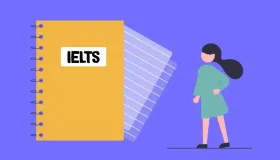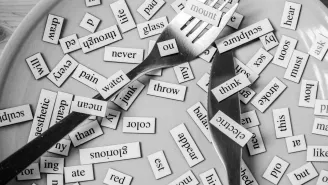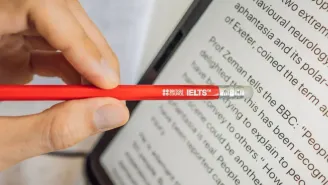What Is Exploration Reading Answers Passage
What Is Exploration Reading Answers Passage
Paragraph A. We are all exploring. Our wish to learn and share newly discovered learning is part of making us human, which plays a vital role in our success as a race. Long before the first caveman fell down near the fire and murmured the news that there were plenty of savages there, they learned the value of sending scouts to investigate what our ancestors did not know. This search nature of ours definitely helped to spread our species around the world, as well as helping to maintain their presence in the now desert forests of Benon Borneo, and an observer negotiated the tunnels of New York.
Paragraph B. For years, we have thought of explorers as a strange race that is different from us, even those who have 'travelled well' differently from us. And there may be a type of person who is more apt to look for something new, a type of caveman who is more willing to go out. Yet, even today, it does not detract from the fact that we all have this inquisitive instinct; Boundaries unknown to artists, marine biologists, or astronomers are being tested every day in all sorts of industries.
Paragraph C. Thomas Hardy set some of his stories in Egdon Heath, an imaginary part of the uncultivated ground, and used the landscape to recommend the characters' wishes and worries. He explores things that we all recognise because they are familiar to mankind. It is certainly an act of exploration in the distant world chosen by the writer. Peter Fleming, an explorer and travel writer, talks with his loved ones about the moment when the researcher returns to the presence he left behind. A traveller who has only seen himself as a small and irrelevant alien for weeks or months, a traveller who crawls hard in a country where he has no sources and no background, unexpectedly finds another person, a somewhat solid figure, a place in his mind of specific persons.
Paragraph D. In this book about exploring the Earth’s surface, I restrict myself to real and more purposeful journeys than personal discovery. But that still left me with another issue: the word ‘explorer’ is associated with the past. As the study somehow peaked in the 19th century and the discovery process is now declining, the truth is that we have only named one and a half million species of this planet. There may be more than 10 million, and it has no bacteria. We have explored only 5 percent of the species we know of. We have seldom drawn sea bases, and know little more about ourselves; We completely comprehend that only 10 percent of our brain is functioning.
Paragraph E. Here's how some of today's ‘explorers’ define this term as the ‘greatest living explorer’. Ran Fiennes said, ‘An explorer is the one who has done something that no human has ever done before and done something scientifically beneficial’. Chris Bonnington, a leading mountaineer, felt that the study of the physical touch of the unknown, 'you must have moved someplace unexplored’. Robin Hanbury-Denison, a campaigner for distant peoples known as the 'Tribes', said, "A traveller records data about some distant world, and an analyst alters the globe."
Paragraph F. Wilfried Thesiger, of the era of non-mechanized travel across the empty quarter of Arabia in 1946, told me, 'If I had ridden a camel while I was in the car, it would have been a stunt.' According to him, exploration is the retrieval of information from a distant place regardless of any major self-discovery.
Paragraph G. Each intention is a little different and reflects the field of effort of each pioneer. Whoever I ask, the leading historian will say that exploration is a thing of the past, and the sophisticated scientist will say that it is the present. And many more. They individually set specific standards for themselves. A common factor in their approach is that, unlike many of us who just delight in travelling or discovering new things, they have a very definite goal from the beginning and a wish to record their discoveries.
Paragraph H. I would better declare my own dependence. As a writer, I am interested in exploring ideas. I have made many trips, each unique. I lived alone for months with two 'unrelated tribes', isolated people from around the globe. But, through my books, none of these things will be of any interest to anyone unless I discover a new inclination and explore a new concept. Why? Because the world has advanced. Another walk to the poles, the time for another amazing continental travel across the empty quarter is long overdue. We understand what the terrain of our planet looks like. Its study is now below the details of the microbial habits, say, or buffalo grazing behaviour. Aside from the deep ocean and deep underground, this is the period of experts. However, it ignores the part of the human mind in conveying distant places, and this is what I am interested in: a new understanding that will give its readers new understandings, even in a well-travelled way.
Also Read: IELTS Reading Tips & Tricks 2024: Techniques for Band 9
What Is Exploration Reading Answers with Sample Questions
Please read the What Is Exploration Reading Answers passage carefully and answer the following questions. We’ve included answers below to help you out. Give it your best shot!
Check Out Top 10+ IELTS Reading Practice Test Questions with Answers
Below are some top free IELTS Reading Practice test online questions with detailed answers to enhance your IELTS preparation online. We have provided sample passages for each test type for your reference.
- Twist In The Tale Reading Answers
- Sleep Reading Answers
- Climate Change Reveals Ancient Reading Answers
- Left Or Right Reading Answers
- Pottery Production In Ancient Akrotiri Reading Answers
- Flawed Beauty Reading Answers
- The Hollywood Film Industry Reading Answers
- The Changing Role Of Airports Reading Answers
- Koalas Reading Answers
- Science In Space Reading Answers







